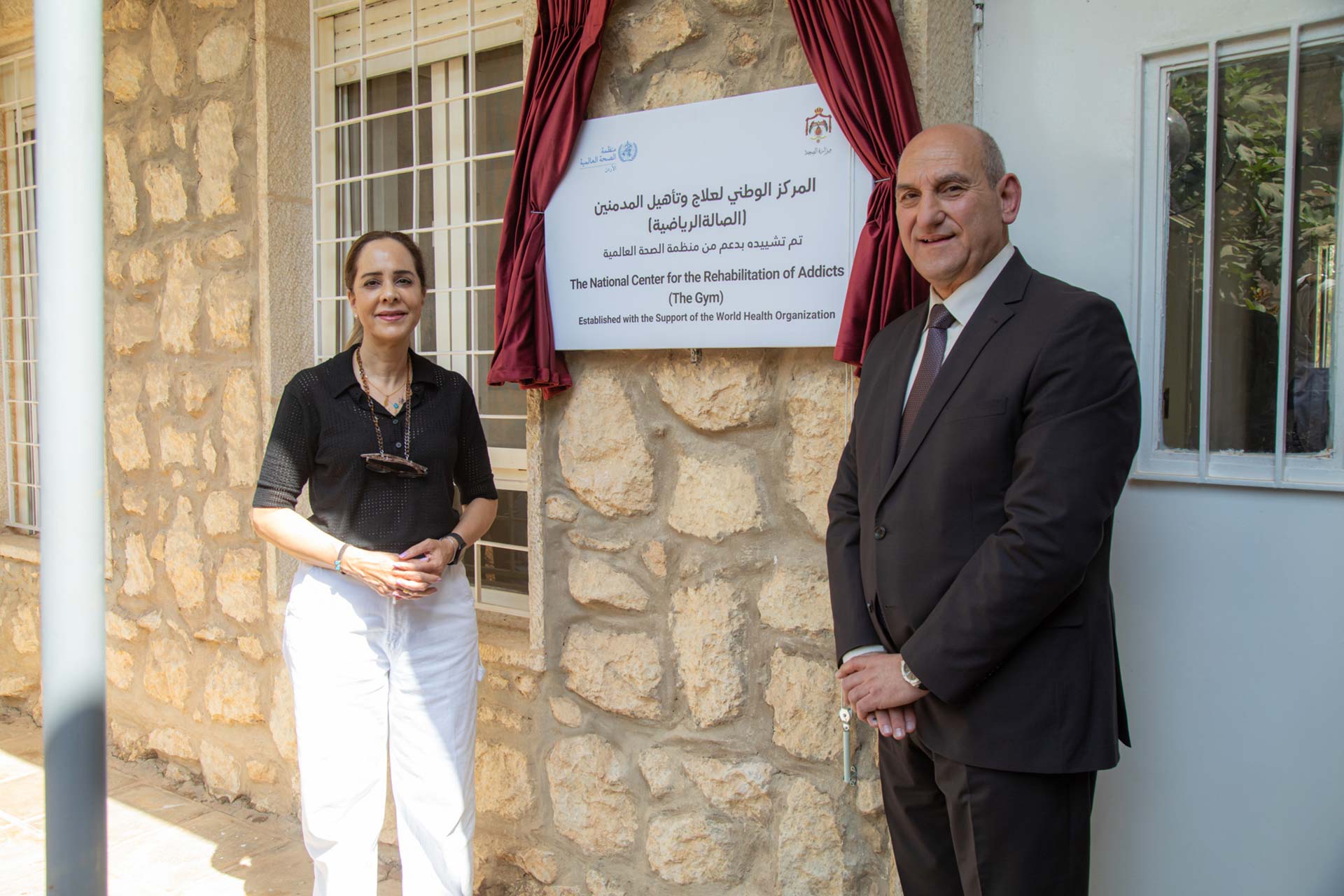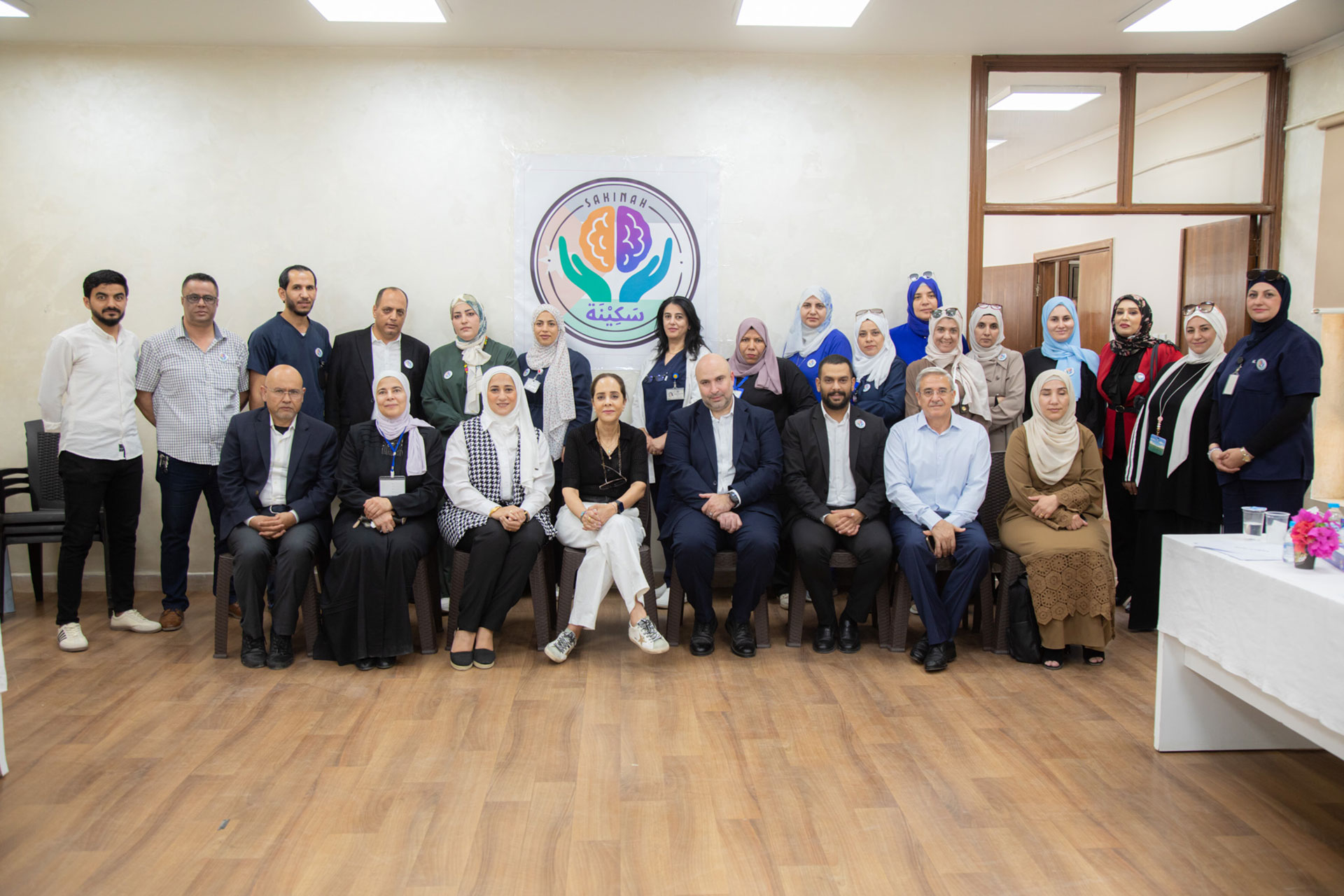
20 August 2025, Amman, Jordan – As part of the World Health Organization (WHO) Regional Director for the Eastern Mediterranean’s flagship Initiative to accelerate public health action on substance use, WHO Jordan and the Ministry of Health inaugurated a new fitness and well-being facility at the National Centre for Rehabilitation of Addicts (NCRA) in Amman.
The newly inaugurated facility, established with WHO support, will enhance holistic, community-centered addiction care in Jordan. It offers a safe and supportive environment that promotes healthy routines, builds self-confidence and contributes to long-term recovery.
With a 40-bed capacity and a dedicated ward for females, NCRA operates under the Ministry of Health’s National Centre for Mental Health. Since its inauguration in 2001, it has served as a short-term residential and outpatient treatment centre offering medical withdrawal services, psychological support and social counselling.
"We are proud to support Jordan in expanding access to comprehensive and dignified services for individuals affected by substance use," said WHO Representative in Jordan Dr Iman Shankiti. "This facility goes beyond fitness. It promotes recovery, restores dignity and offers individuals the tools they need to reclaim their health and rebuild their lives."

Attended by representatives from the Ministry of Health, health providers, international organizations, community members and individuals in recovery, the opening embodied a collective commitment to leave no one behind in the journey towards health and well-being.
Following the formal inauguration, WHO organized a dialogue with health workers and service users to gain deeper insights into the challenges faced in accessing substance use services. The discussions explored mechanisms to enhance service delivery and captured community perceptions of addiction to inform awareness-raising efforts. The exchanges were interactive, featuring segments led by service users including performances and storytelling.
In parallel with the facility’s inauguration, SAKINA, a pioneering nursing-led initiative at NCRA, was launched. SAKINA – tranquility in Arabic – aims to establish a model for community-based rehabilitation rooted in holistic care and patient empowerment. The 5 letter Arabic word reflects 5 core principles raised by recovering patients: inner peace, breaking the cycle of addiction, believing in recovery supported by kindness, psychological growth and empowerment.
The initiative focuses on supporting individuals recovering from substance use through structured multi-disciplinary care that includes medical, psychological, physical and social services. SAKINA reflects WHO’s vision of enabling frontline health workers, particularly nurses, to lead innovative care models that respond to local needs.
Mobilizing local actors, civil society and strategic partnerships, the initiative aims to strengthen recovery beyond clinical care, reintegrate individuals into society and reduce stigma. It embodies the essence of the flagship Initiative, a people-centered approach to substance use-response that recognizes humanity and resilience in recovery.
With the support of WHO and continuing efforts by the Ministry of Health, Jordan is taking meaningful steps towards strengthening its addiction response system. From investing in physical rehabilitation to piloting innovative care models, the country is shaping a future where treatment is accessible, recovery is supported and no one is left behind.







